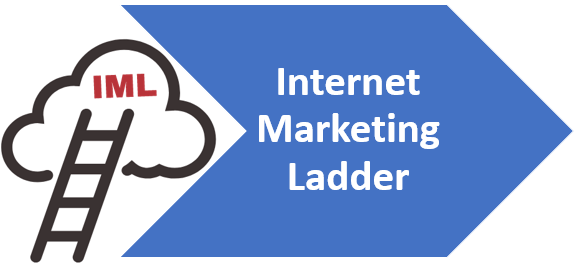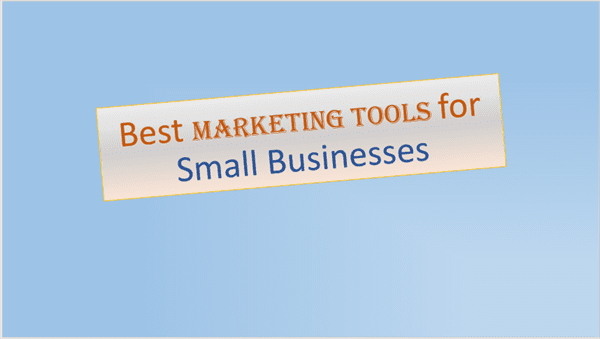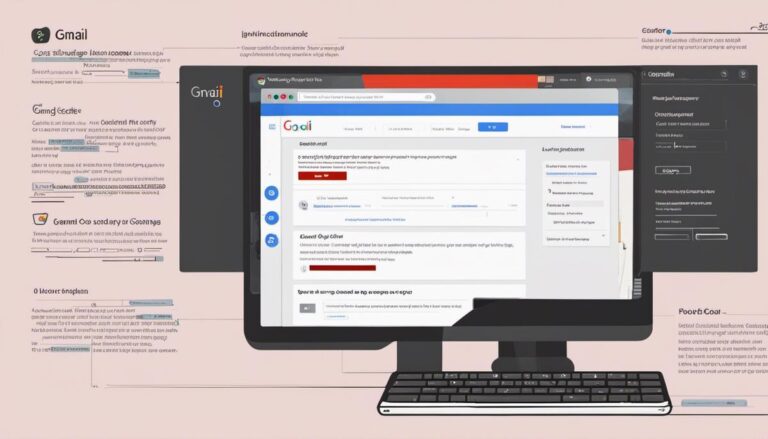Revolutionise Business through Email Marketing Tools
Email Marketing Tools
With the digital age continually developing and evolving, businesses around the globe are adapting to meet the demands of this new reality. Locations are no longer a barrier, and anyone with access to technology can become a potential customer. In this light, the prominence of email marketing has risen, tooling businesses with strategies to keep in touch with their audience and more. Such marketing strategies can not only reach an extensive customer base but also increase engagement and dramatically improve returns. It’s incredibly significant to zero down on the best email marketing tools and learn to effectively implement them. After all, understanding the metrics to measure success can fine-tune your strategies and maintain your pace with future trends in email marketing.
Understanding the Power of Email Marketing
The digital landscape is continuously evolving, transforming the way enterprises operate, and opening new avenues for business growth. Among all these, email marketing stands as a stalwart, remaining an unbeatable tool for lead generation and customer retention. Leverable through various tools, it empowers enterprises to maximise business potential by fostering customer engagement, establishing brand credibility, and driving up sales.
We live in an era saturated with information – online adverts, social media posts, pop-ups, and PPC campaigns. Amidst this clutter, email marketing steps up as an effective and reliable digital marketing strategy. It offers personalised outreach, tailoring messages to meet the unique needs of each customer. Email marketing tools provide the perfect platform for crafting personalised pitches, translating one-time visitors into loyal followers, and creating lasting consumer connections.
Email marketing tools, such as MailChimp, SendinBlue, and Zoho, come packed with features designed to enhance business performance. Advanced analytics, for instance, provides insights that drive informed marketing decisions. By analysing click rates, open rates, and customer preferences, businesses can tailor their marketing strategy, adjust it to meet evolving trends, and stay ahead of the competition. It’s a world where data-driven decisions rule, and email marketing tools pave the way!
Automation – it’s not just a buzzword but a reality in the contemporary corporate world. Email marketing tools embody this, removing the manual grunt work and streamlining the process. Automated email responses, drip campaigns, and newsletter distribution free up crucial time. Businesses can thereby focus on inventing novel strategies and expanding their horizons.
Moreover, email marketing favours all businesses, irrespective of size and industry. It boasts an impressive return on investment (ROI), with a staggering $44 made for every $1 spent! This high ROI can be significantly attributed to the low-cost nature of email campaigns compared to traditional marketing methods.
The local bakery to the globally renowned brand – all reap benefits from email marketing, all owing to the reach and user-friendly interfaces provided by these tools. Modern business success lies in embracing technology, and email marketing tools form a pivotal role in this digital transformation.
Imagine a world where brand messages reach the right audience at the right time, fostering customer relationships and propelling businesses forward. That’s the magic of email marketing tools – your secret to unlocking unbridled business potential in the digital era!

Navigating the Best Email Marketing Tools
In the ever-changing sea of digital tactics, entrepreneurs continually need to adjust their sails to stay relevant. Strategizing around consumer behavior, market trends, and past data is a daily pursuit. It’s clear that beyond the borders of conventional marketing methods, the real titan tread in the water of the digital sea is email marketing.
Differently colored apps in a mobile phone’s home screen are not just multicolored squares representing their respective companies. But they carry the potency of brand establishment and customer relationships, simply via consistent email outreach. Companies often use email marketing tools to help them stay connected with their customers, to inform them of new products and services, and to offer deals or selling opportunities.
Continuing on the list from where we left, there are several other significant players in the email marketing field.
We must consider the undeniable power of Constant Contact with its intuitive interface, empowering businesses irrespective of size or industry. It provides a variety of templates for professionals to design engaging emails, features like scheduling, contact segmentation, and advanced analytics that make marketing efforts strategic and impactful. Constant Contact makes it easy to analyze the effectiveness of your email marketing campaigns, allowing you to make data-driven decisions.
Next, let’s not forget the prowess of GetResponse which is more than your average email marketing tool. From webinar solutions to a landing page creator, it wears multiple hats. The platform combines an understanding of user behavior and personalized automation, thus enabling businesses to make the right move at the right time, enhancing engagement rates.
Campaign Monitor, another such tool brings the benefit of aesthetics, simplicity, and functionality together. Its user-friendly interface allows even non-tech savvy people to create stunning emails that resonate with your brand and market to the audience in an engaging and significant way.
There are various other platforms paving the way for next-level email marketing, such as ActiveCampaign, AWeber, BenchMark, and more. Their unique features set them apart in this competitive market. Entrepreneurial success in the digital marketing arena isn’t purely about crafting the perfect product or service – it’s about optimizing the tools at your disposal to effectively reach your audience and foster long-term relationships.
So, it’s difficult to pinpoint one “best” email marketing tool as each product has its own strengths and features, and the best choice will vary depending on a business’s specific needs. In conclusion, if you know your business requirements, understanding the nuances of these tools is cardinal to make an informed decision.
It’s crucial to remember, when it comes to leveraging technology, businesses must not only use tools reflexively but effectively. The mainstay isn’t just to send emails but to elevate your communication to a verbal quorum; with tailor-made messages and timeous calls to action, aligning the brand behavior with the audience’s needs. Make your moves strategically in this digital chessboard, and surely, success would just be a ‘checkmate’ away.

Implementation of Email Marketing Tools
Title: Strategies for Successful Email Marketing: The Power of Digital Tools in Business
Businesses today must stay agile in their marketing tactics, adjusting and shifting as digital landscapes evolve. The game of email marketing, in particular, is no longer a one-play match. When harnessed properly, this channel forms the bedrock of branding, nurturing deep-rooted customer relationships and driving engagement like no other method.
Staying connected is the cornerstone of any marketing venture. You know your customers depend on you, and connecting through frequent, personalized emails allows you to inform them about fresh product launches or exclusive services. Lacking in this area? Look no further than tools like Constant Contact.
Renowned for its user-friendly creation interface and automation features, Constant Contact supports businesses in creating professional-standard, visually appealing emails. More than the effective distribution of newsletters, it aids in the managing of contact lists, offering detailed analytics to track performance and ensure continual improvement.
Broadening the spectrum of available tools, GetResponse goes beyond traditional email marketing service models. This innovative platform incorporates a host of features, including webinars, landing pages, and advanced automation, making it possible for businesses to run nuanced marketing campaigns from a single dashboard.
Simplicity is the key for Campaign Monitor. Its intuitive design features remove the guesswork from creating engaging emails. Along with its impressive anti-spam practices and powerful integrations, Campaign Monitor comes in as a compelling option for small businesses and large entities alike.
Other platforms are also afoot in this sphere, such as ActiveCampaign, AWeber, and BenchMark, each bringing unique strengths to the table. Powerful features, cost-effectiveness, and flexibility make these tools invaluable assets in a comprehensive email marketing strategy.
Understanding the unique business requirements and recognizing the strengths of different email marketing tools is paramount, given the rich ecosystem of platforms available. Utilizing these tools to their optimum capacity will form an essential part of an enterprise’s digital transformation journey.
Chalking out a clear, strategic approach lays the foundation for digital marketing success. Tailor-made messages integrated with well-timed calls to action can significantly enhance the effectiveness of your email marketing efforts.
In the push and pull of the business world, harnessing contemporary tools and technologies has become indispensable. Remember, integrating the right email marketing tool is only the beginning. Ensuring its effective usage, optimizing to meet evolving business needs, and strategically leveraging the technology to your advantage, sums up the keys to your digital marketing success. Welcome to the age of savvy email marketing – ripe with potential and waiting for your move.
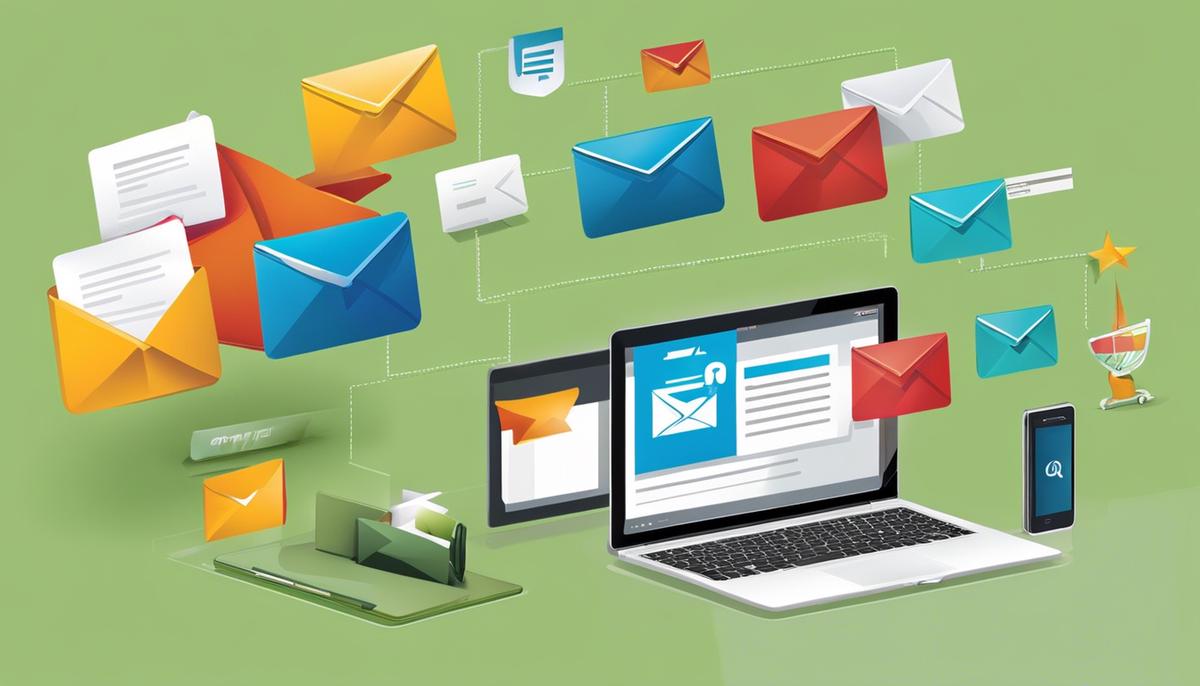
Metrics of Successful Email Marketing
The pursuit for competitive leverage in today’s market is centered around the effective measurement of email marketing metrics. This sector has earned its essential status due to its dynamic capabilities and performance tracking. Going a step beyond regular delivery, opening, and click rates, today’s business champions scrutinize the metrics that truly matter.
Email marketing endeavors become veritable gold mines when understood and implemented effectively. The success of email marketing endeavors is, therefore, not just measured by the quantity, but more importantly, the quality of engagement. Understanding this conscious shift sets apart the successful from the struggling.
It starts with the Open Rate. This is the percentage of recipients who open the email against the total number sent. High open rates reflect successful subject lines that appeal and engage. Open rates serve as preliminaries, establishing the initial traction, laying the groundwork for deeper engagements with subscribers.
Closely linked is the Click-Through Rate (CTR). It ascertains the percentage of email recipients who clicked on one or more links contained in a given email. High CTRs translate into high engagement rates with content, demonstrating effective Call-to-action (CTA) placements. Innovators understand that these aren’t blanket rates but must be aligned to specific campaign objectives. For one campaign, a 10% CTR could be worthy of a celebratory dance, while another might call for a reflective pause.
Bounce Rate is another key metric. This refers to the percentage of total emails sent that could not be delivered to the recipient’s inbox. Separated into hard (permanent reasons v. invalid email addresses) and soft bounces (temporary reasons v. full inbox), these metrics underscore the health of your email lists or specifics like spam labeling.
Equally notable is the Conversion Rate – the percentage of email recipients who complete the desired action such as making a purchase or filling out a form. Top-ranking brands keep laser focus on this, understanding the end game isn’t the click, but consumers following through with the intended call to action.
Unsubscribes and Complaint Rates are telling too. It’s unsettling to watch subscribers jump ship. However, all is rarely lost. Removing disinterested parties helps maintain not only cleaner lists but also better engagement rates and branding perception. These metrics matter, giving room to reevaluate and refine strategies.
Deep diving, further, into advanced metrics like Overall ROI (Return on Investment), List Growth Rate, and Email Sharing/Forwarding Rate take businesses to a subterranean level. This happens when you calculate revenues generated from the email campaign, gauging audience growth over time, and how often your subscribers share your content with others respectively. Ultimate entrepreneurs understand the value these advanced metrics bring and therefore, keep the impact-generating data at their fingertips.
In conclusion, successful email marketing is about engaging quality rather than pure quantity. It’s about igniting conversations, not just delivering messages. No longer the passive player, the subscriber is granted the central role in the modern digital marketing arena. Armed with these metrics, entrepreneurs are equipped to create more directed, actionable strategies, thus positioning their brands for increased success. Industry-savvy entrepreneurs don’t just hit the ‘send’ button; they track, learn, and optimize. Welcome to the future of full-throttle email marketing.
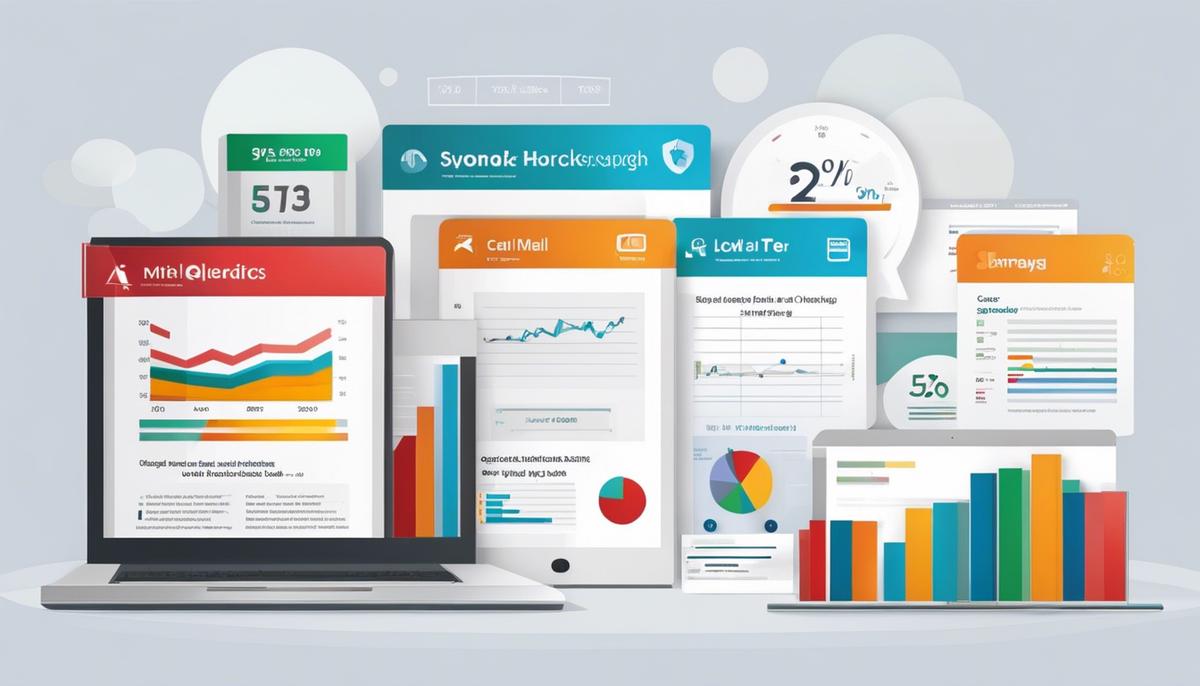
Future Trends in Email Marketing
Looking towards the future, trends in email marketing are aligning with the rise of data science and artificial intelligence (AI). First on deck are predictive analytics and machine learning, technologies posed to revolutionize email marketing strategies. These smart algorithms will assess past behaviors and trends, enabling email marketing campaigns to predict future consumer behaviors. This fresh predictive perspective will bring email marketing efforts a step closer to achieving predictive personalization of email content for maximum effectiveness.
Next, expect a surge in the use of dynamic content in email marketing. Dynamic content in emails is a comprehensive method to optimize email content based on a recipient’s data. For example, instead of sending one standard email, marketers can send individualized emails that resonate with recipient’s preferences and behaviors. This technique maximizes user engagement and bolsters email marketing ROI by harnessing personalization to exactly match the recipient profiles.
Chatbots may seem to live only in customer service lanes, don’t be fooled. The inclusion of these AI-powered technology in email marketing is a groundbreaking feature to anticipate. Imagine having intelligent, automated customer engagement systems, from order confirmations to shipping updates, delivered with a personal touch. Combined with the other trends and the fast-paced advancement of AI, it’s conceivable we could witness this technology making a splash in email marketing in the near future.
Not to be forgotten is the healthy marriage between email marketing and social media channels. The omnipresence of social media in our lives makes it a ripe medium for integrating into future email marketing for amplified reach. Expect savvy marketers to tie in social media buttons within emails, encourage recipients to follow their brand’s social profiles, or incentivize subscribers to share their emails on social platforms.
Lastlt, Interactive Email Content is an exciting trend poised to shake up the email marketing realm. It’s all about fostering recipient engagement directly within the email itself. Perhaps it’s a tapping on a slider to view multiple products, or involve filling a mini-survey within the email, or even play a game and win a coupon code. With interactive content, emails go beyond mere communications; they morph into active engagement tools with multi-faceted options.
While the digital landscape continues evolving at light-speed, opportunities for innovations in email marketing are virtually limitless. By staying updated with these future trends, marketers can ensure their strategies remain agile, effective and competitive, while harnessing the power of technology to forge stronger customer relationships.

Indeed, email marketing is here to stay, growing with technological advancements and promising untapped potentialities. The utilization of Artificial Intelligence, Automation, Personalization, and Predictive Analysis will no doubt aid in crafting more personalized and highly efficient marketing communications. All this amounts to the inevitable fact that businesses which adeptly wield effective email marketing tools to monitor the right metrics will gain an unrivaled edge. Understanding and harnessing the power of email marketing will, therefore, continually shape the landscape of a digital economy, empowering businesses as they march forward into an uncertain yet exhilarating future.
